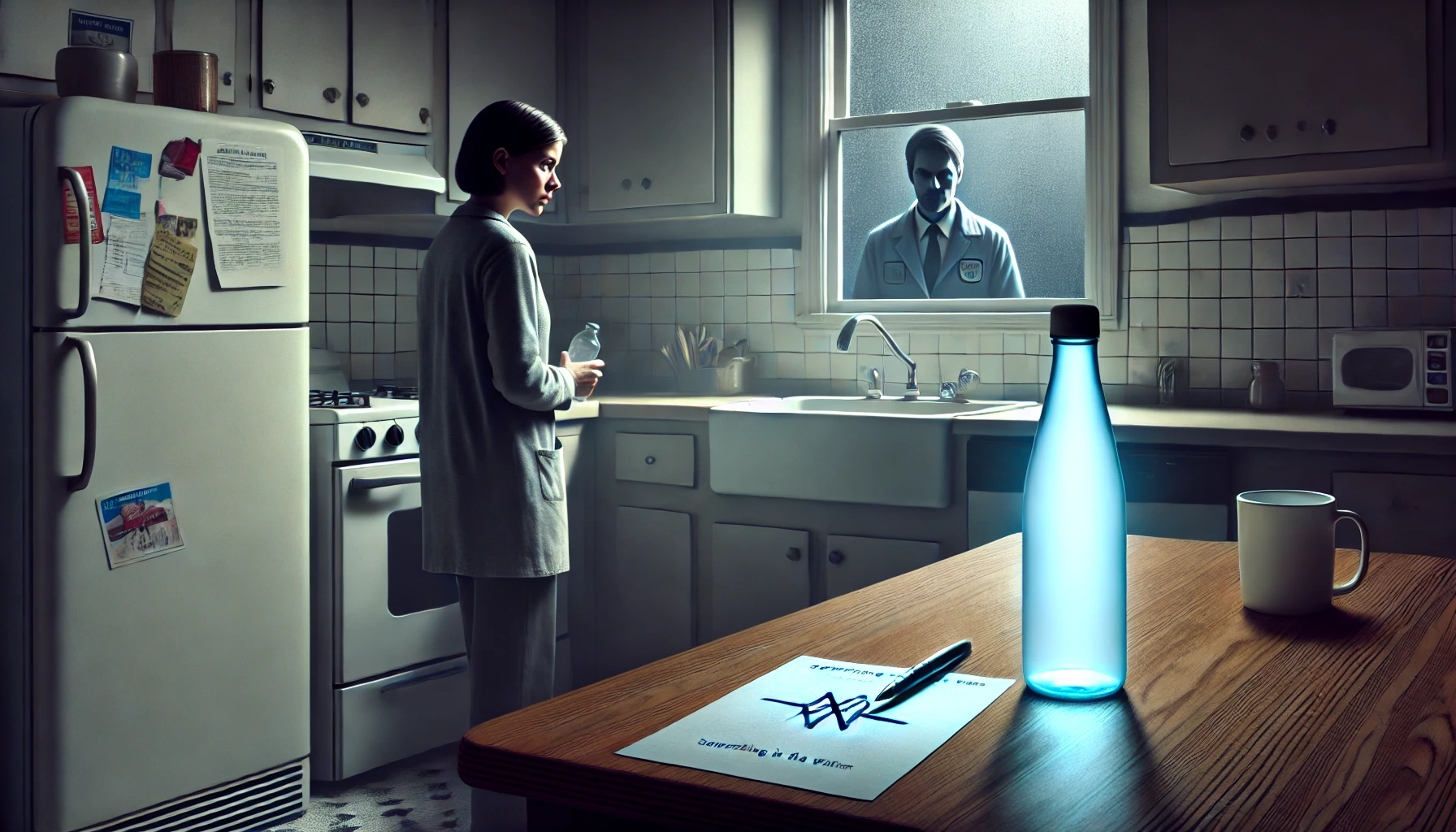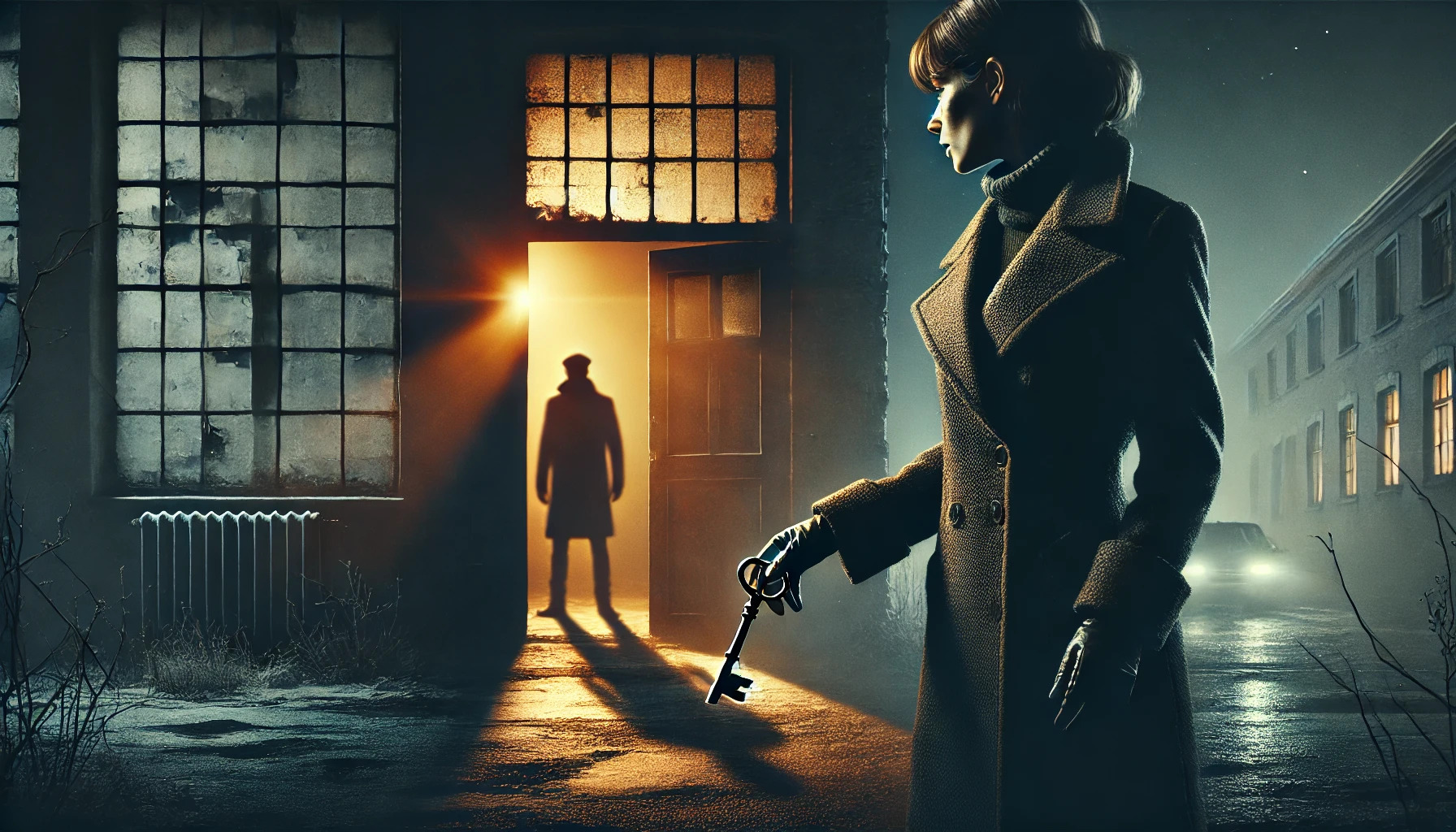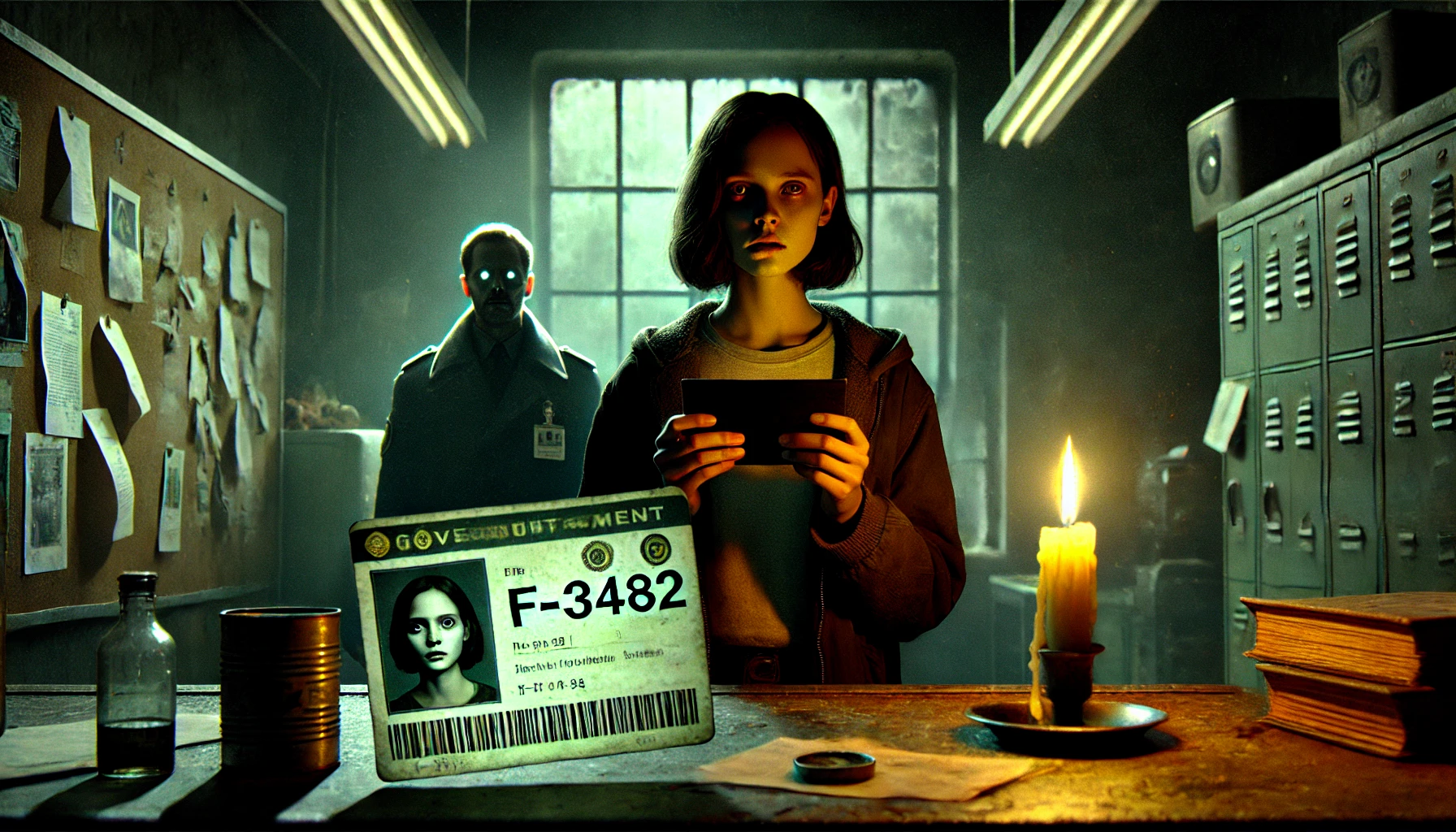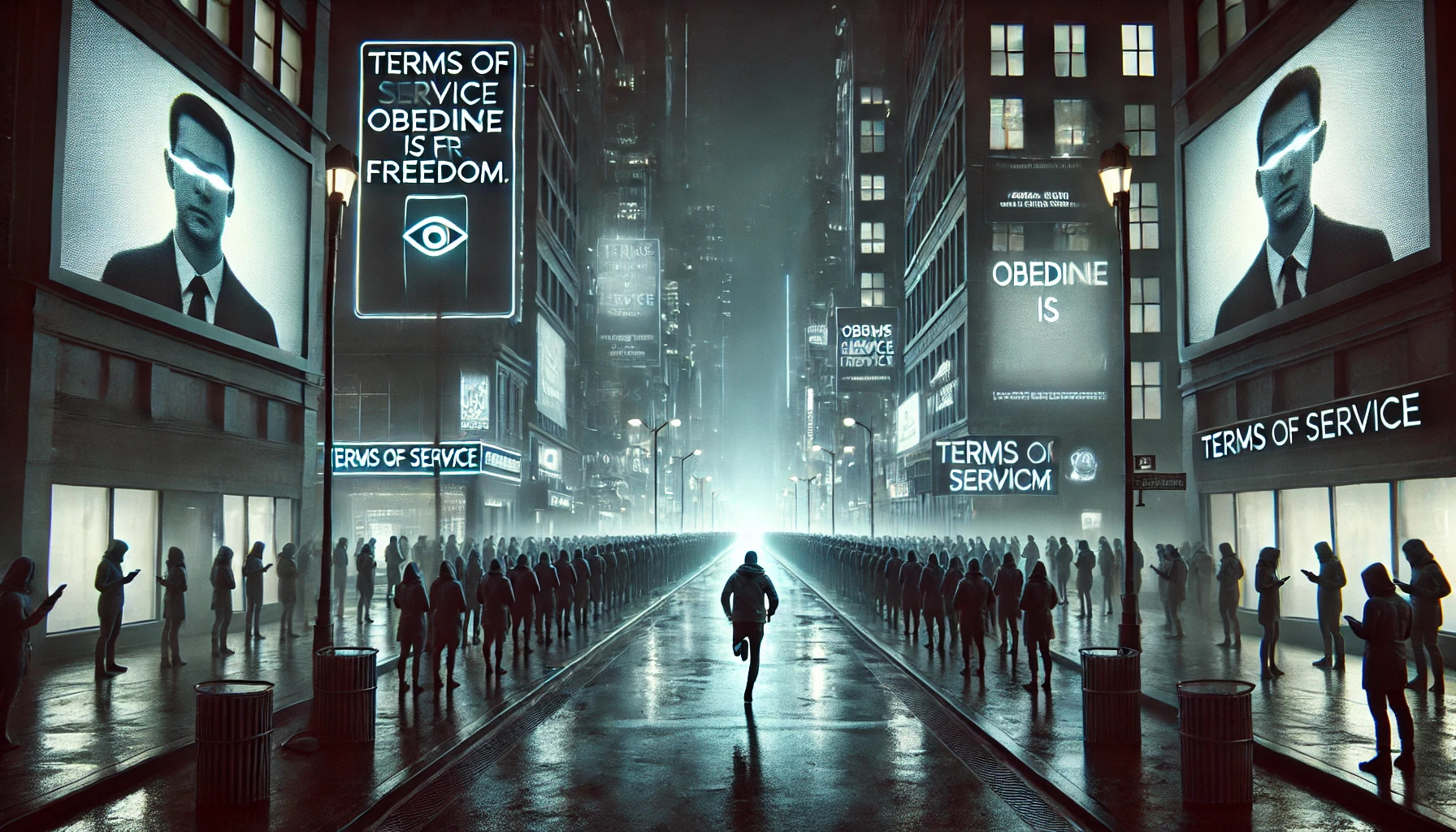
Something in the Water
After a mandatory hydration program is rolled out across the city, one woman notices disturbing changes in her brother—and everyone else. When she investigates the water’s strange effects with the help of a reclusive scientist, she uncovers a chilling truth: the mind control isn't coming through screens... it's coming from the kitchen sink.
I stopped drinking tap water the day my brother stopped recognizing me.
He looked me dead in the eye and asked, “What unit are you from?” like we were strangers in a war zone.
Tyler was a paramedic. We grew up in the same apartment, same city, shared the same obsession with solving cryptic crossword puzzles. But after the outbreak drills started and “daily nutrient packs” were distributed citywide, he began to change. At first it was subtle—missing words, slow reactions. Then he became quiet in that eerie, observing way.
I was the last one who noticed.
The packs were mandatory. So was the tap water, now “cleansed and optimized for mental clarity.” The city claimed it was an emergency measure after the neurovirus scare. But I didn’t feel clearer. I felt numb.
And everyone around me—bus drivers, clerks, coworkers—moved in lockstep. No arguments. No eye contact. They didn’t blink enough.
One night, Tyler showed up at my door in uniform, eyes glassy, uniform pressed like he’d walked off a recruitment poster.
“You haven’t checked in,” he said.
“For what?”
He handed me a bottle of water. It had no label.
“Mandatory hydration. You’re three days behind.”
I set it on the counter without opening it. “Tyler, what’s going on? You’re not acting like yourself.”
His smile was polite. Robotic. “Everyone must participate. You’ll understand soon.”
Before I could reply, he left.
That night I couldn’t sleep. I stared at the bottle. Its cap reflected the hallway light in a dull, almost oily shimmer. I remembered a camping trip when we were teens—Tyler and I filtered river water through charcoal, laughing at the taste but proud it was ours.
This—whatever this was—wasn’t ours.
The next morning, I took the bottle to Dr. Samuels, a retired biochemist I’d met through an online whistleblower forum. She was old, skeptical, and always smelled faintly of burned coffee. But she trusted nothing packaged by the state.
She sniffed it. Swirled it. Dipped a thin strip of paper in.
Her brow furrowed. “There’s something here. Not chemical. Something… reactive.”
“To what?”
She stared at me. “Brainwave frequency, maybe. It adapts. Like it wants to match us before changing us.”
I said nothing. But the air felt heavier after her words.
I got home to find my apartment unlocked.
The water bottle was gone.
In its place was a note, handwritten in blue pen:
“Noncompliance is deviation. Deviation spreads.”
There was no signature. Just a single symbol at the bottom—two wavy lines crossing through a triangle. I’d seen it before—graffitied behind the old subway station, always scraped off the next day.
My phone buzzed.
Unknown number: “Your next delivery will be in person.”
I stared at the empty kitchen counter. Tyler’s crossword book sat beside the stove, open to a half-finished puzzle. One clue glared back at me:
10 Across: “To forget willingly.” (7 letters)
I picked up a pencil and filled it in: “surrender.”
Then I flipped the book closed.
I walked outside without a bag, without my ID. The city shimmered under clinical morning light. A delivery truck pulled up across the street.
I turned the other way.
And I started walking.
He looked me dead in the eye and asked, “What unit are you from?” like we were strangers in a war zone.
Tyler was a paramedic. We grew up in the same apartment, same city, shared the same obsession with solving cryptic crossword puzzles. But after the outbreak drills started and “daily nutrient packs” were distributed citywide, he began to change. At first it was subtle—missing words, slow reactions. Then he became quiet in that eerie, observing way.
I was the last one who noticed.
The packs were mandatory. So was the tap water, now “cleansed and optimized for mental clarity.” The city claimed it was an emergency measure after the neurovirus scare. But I didn’t feel clearer. I felt numb.
And everyone around me—bus drivers, clerks, coworkers—moved in lockstep. No arguments. No eye contact. They didn’t blink enough.
One night, Tyler showed up at my door in uniform, eyes glassy, uniform pressed like he’d walked off a recruitment poster.
“You haven’t checked in,” he said.
“For what?”
He handed me a bottle of water. It had no label.
“Mandatory hydration. You’re three days behind.”
I set it on the counter without opening it. “Tyler, what’s going on? You’re not acting like yourself.”
His smile was polite. Robotic. “Everyone must participate. You’ll understand soon.”
Before I could reply, he left.
That night I couldn’t sleep. I stared at the bottle. Its cap reflected the hallway light in a dull, almost oily shimmer. I remembered a camping trip when we were teens—Tyler and I filtered river water through charcoal, laughing at the taste but proud it was ours.
This—whatever this was—wasn’t ours.
The next morning, I took the bottle to Dr. Samuels, a retired biochemist I’d met through an online whistleblower forum. She was old, skeptical, and always smelled faintly of burned coffee. But she trusted nothing packaged by the state.
She sniffed it. Swirled it. Dipped a thin strip of paper in.
Her brow furrowed. “There’s something here. Not chemical. Something… reactive.”
“To what?”
She stared at me. “Brainwave frequency, maybe. It adapts. Like it wants to match us before changing us.”
I said nothing. But the air felt heavier after her words.
I got home to find my apartment unlocked.
The water bottle was gone.
In its place was a note, handwritten in blue pen:
“Noncompliance is deviation. Deviation spreads.”
There was no signature. Just a single symbol at the bottom—two wavy lines crossing through a triangle. I’d seen it before—graffitied behind the old subway station, always scraped off the next day.
My phone buzzed.
Unknown number: “Your next delivery will be in person.”
I stared at the empty kitchen counter. Tyler’s crossword book sat beside the stove, open to a half-finished puzzle. One clue glared back at me:
10 Across: “To forget willingly.” (7 letters)
I picked up a pencil and filled it in: “surrender.”
Then I flipped the book closed.
I walked outside without a bag, without my ID. The city shimmered under clinical morning light. A delivery truck pulled up across the street.
I turned the other way.
And I started walking.



Comments